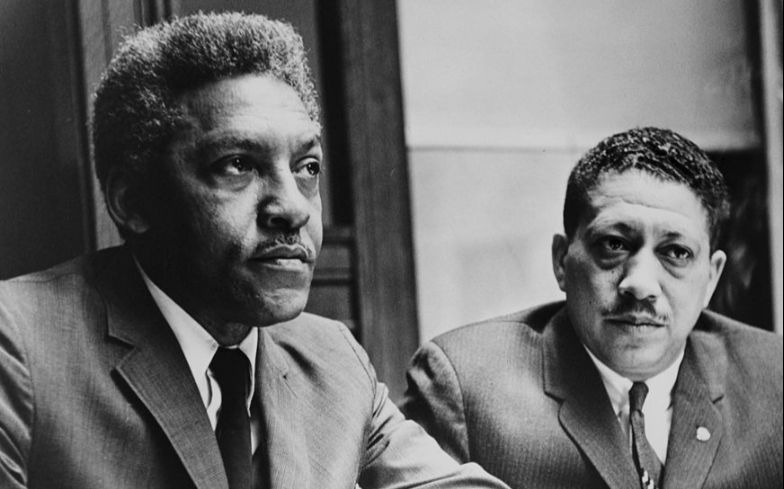
Bayard Rustin was a central figure in the civil rights movement.
Civil rights leader Bayard Rustin has been posthumously pardoned for gay sex. Alongside the announcement of Rustin’s pardon, California’s governor, Gavin Newsom, said there’d be a new pardoning process for gay men convicted under old laws.
Rustin, who was a central figure in the civil rights movement, was arrested in 1953 after he was found having sex with two men in a parked car. He was sentenced to 50 days inside the Los Angeles County jail, and had to register as a sex offender. He died in 1987.
He had previously lost his leadership of the Fellowship of Reconciliation, a pacifist group involved with the civil rights movement, after Senator Strom Thurmond from South Carolina read his arrest file into the Congressional Record. This subsequently led to figures in the civil rights movement to distance themselves from Rustin.
In a statement, Newsom said: “In California and across the country, many laws have been used as legal tools of oppression, and to stigmatize and punish LGBTQ people and communities and warn others what harm could await them for living authentically.”
He then urged others convicted under the old laws “to seek a pardon to right this egregious wrong.”
The push to pardon Rustin came from California state Senator Scott Weiner, the chair of the senate’s LGBTQ caucus, and Assemblywoman Shirley Weber, the chair of the senate’s Black caucus.
Weber said the pardon left Rustin’s position in the civil rights movement “uncompromised.”
She added: “Rustin was a great American who was both gay and black at a time when the sheer fact of being either or both could land you in jail. This pardon assures his place in history.”
Former president Barack Obama had previously honoured Bayard Rustin, posthumously awarding him the Presidential Medal of Freedom on the 50th anniversary of the March on Washington and Martin Luther King Jr.’s I Have a Dream speech.



